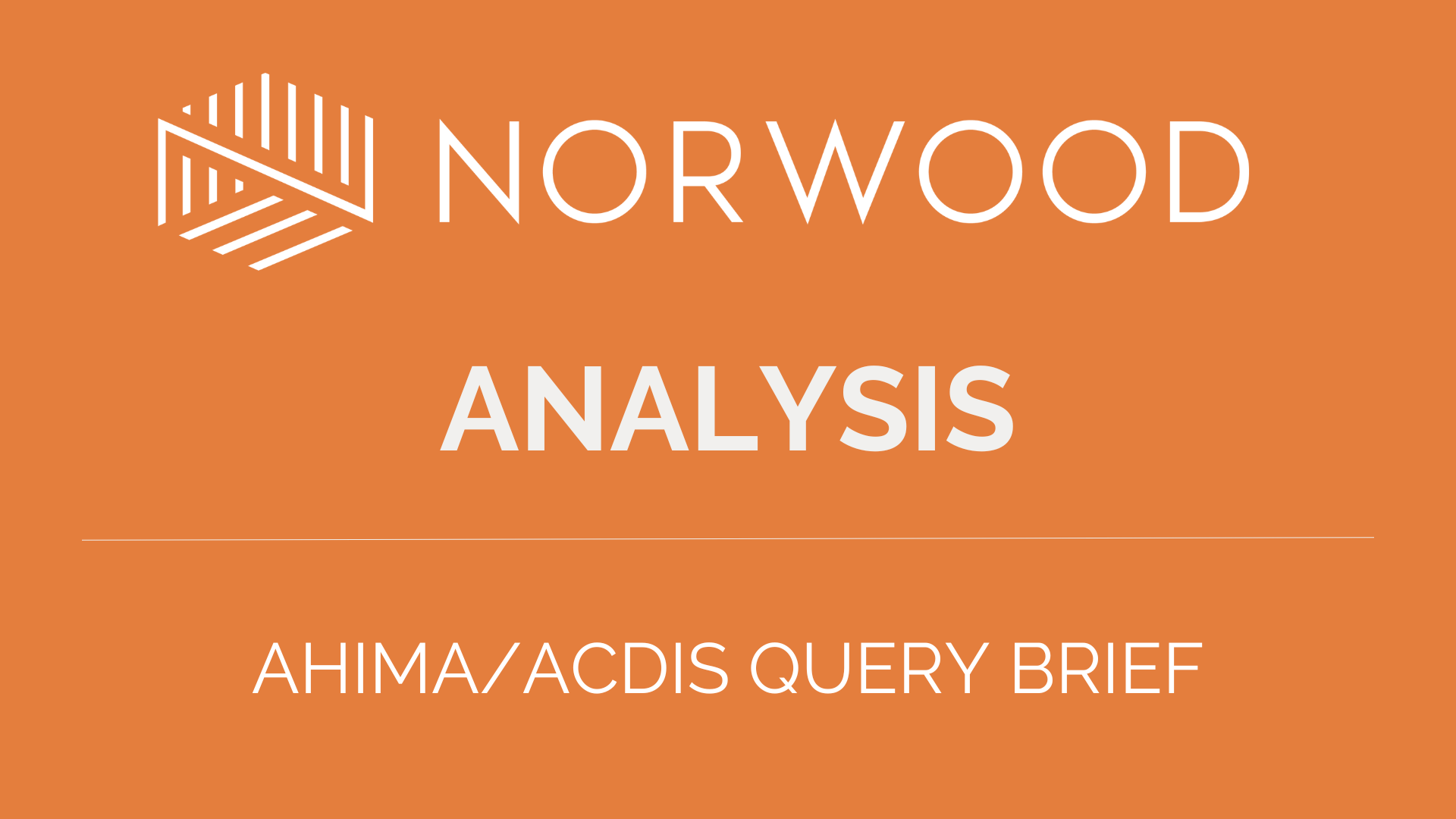
New guidance recommends adding clinical validation language into payer contracts to head off denials
By Brian Murphy
ACDIS and AHIMA addended the guidelines all CDI and coding professionals should be using to write effective, compliant queries. Link below. This new addendum (you can find it on p. 27 of “Guidelines for Achieving a Compliant Query Practice-2022 Update,” link below) is short enough that I’m running it here in full, but I recommend you head over to the ACDIS site and read it in context of the practice brief.
It seems the committee who wrote the brief realized the need for clarification regarding denial trends and queries, hence the new entry. It reads:
***
Addressing Feedback Related to Denial Trends
Denial trends have indicated that payers have been challenging diagnoses obtained through query by questioning query compliance. These challenges should be evaluated to ensure they reflect compliance versus best practice.
Coding Guidelines and AHA Coding Clinic guidance consistently state that when the documentation is unclear, the provider should be queried. Provider queries are a necessity, allowing both CDI and coding professionals to effectively clarify the health record and to capture appropriate patient complexity and reimbursement for resources provided.
The Guidelines for Achieving a Compliant Query Practice, published jointly by AHIMA and ACDIS in 2022, provides best practices for query professionals to produce compliant provider queries. The writers encourage organizations to draft query policies and practices based upon this guidance, thereby supporting a compliant query process. These policies should be agreed upon within the contracting process, and they should be used to evaluate query compliance and defend that compliance when challenged. Both entities, healthcare organizations and payers, should hold each other responsible for following these policies when writing and evaluating queries.”
***
Based on what I’m reading above it looks like AHIMA/ACDIS are advising that hospitals should a) draft individual query policies based upon the query brief, then b) obtain agreement on these policies from their payer(s) during contracting to ensure both sides—healthcare organization and payer—abide by them.
Let me know if you have the same interpretation.
This new guidance is somewhat related to a disagreement I had with a recent AHIMA clinical validation brief released a couple months ago. See link below.
Essentially, the sticking point is: If you query/clarify a documented diagnosis that appears to lack clinical support, and the physician reconfirms the presence of the diagnosis, per coding guidelines you should report that diagnosis. But payers are denying these diagnoses for lack of clinical support. And to make matters worse the practice can trigger broader audits or even false claims actions.
Therefore many advise to leave these diagnoses uncoded, even against coding guidelines.
This new addendum seems to say: Don’t let it get to this point. Get your policies clarified with the payer(s), and then both sides should be jointly accountable.
I commend ACDIS and AHIMA for continuing to draft guidance to help the CDI and coding communities navigate a challenging environment.
References
Updated “Guidelines for Achieving a Compliant Query Practice-2022 Update” with new addendum: https://acdis.org/resources/guidelines-achieving-compliant-query-practice%E2%80%942022-update
Related post on AHIMA practice brief, “Clinical Validation (2023 Update)”: https://www.linkedin.com/posts/brian-murphy-13800b11_i-disagree-with-one-portion-of-the-recently-activity-7098294136176271361-7jg9?
Related News & Insights
NEJM Study: AI not Ready to Perform Basic Medical Coding, Let Alone Replace People
By Brian Murphy In the battle of artificial intelligence (AI) vs. humans, score one for humanity. Yeah,…
Transforming Episode Accountability Model (TEAM) Reconfirms CMS Commitment to Bundled Payments and Value-Based Care
By Brian Murphy Every time I think bundled payments are out, they drag me back in. I…


